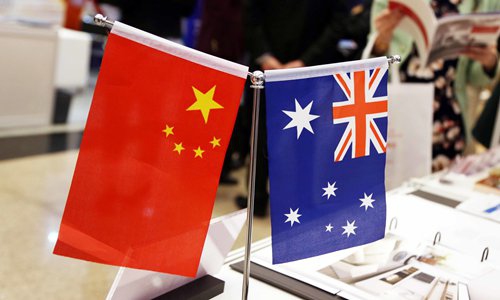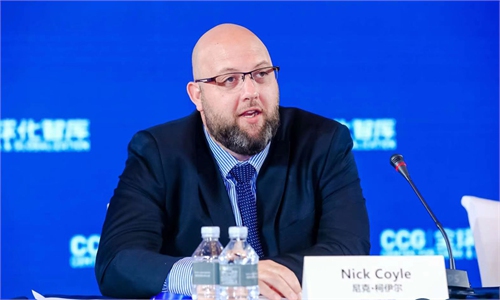
China Australia File photo
Australian participants involved in the sister-state cooperation program between Australia's State of Victoria and East China's Jiangsu Province told the Global Times on Tuesday that it would be very disappointing if ties are damaged amid intensifying tensions, and they called for the continuation of positive relations.
The comment followed a report by Australian newspaper The Age, saying that the Australian federal government is considering tearing up a research agreement between the Victorian government and China's Jiangsu Province, as the deal has been "identified as potentially contrary to Australia's national interest," citing federal government sources.
The Science and Technology Department of Jiangsu Province signed a deal with Victoria in 2015 on the development of technological innovation cooperation, media reported. According to the deal, funds are allocated each year to establish and jointly implement an industrial research and development (R&D) cooperation plan to support scientific and technological innovation cooperation for commercialization in both places, and enhance each other's industrial competitiveness.
The Victorian government and the Science and Technology Department of Jiangsu did not respond to the Global Times enquiries as of press time.
David Anderson, deputy director of partnerships at Australia's medical research organization Burnet Institute, told the Global Times on Tuesday that the institute was funded through the first round of the Victoria-Jiangsu grants for collaborative work at Boint Biotech in the province.
"It was this work that helped to complete a long-term project to develop novel technology for diagnostic tests using dimeric IgA," said Anderson.
Burnet has used the technology to develop improved serology tests for COVID-19.
"We have been funded again with Boint Biotech in the next round of Victoria-Jiangsu grants, starting next week, to develop additional tests using that technology for measles and hepatitis B in the first instance," Anderson said.
"I would be extremely disappointed if the cooperative program did not go ahead, because we had excellent outcomes from our previous program project, leading to a new diagnostic approach for point-of-care testing," he noted. Burnet has had other collaborative projects, especially in public health, in China for more than 25 years, which has been positive.
The deal, which was renewed in 2019, provides grants for Victorian companies and universities to share intellectual property (IP) and develop new products with companies from the Chinese province.
The program guidelines say, according to The Age report, that at the conclusion of the projects, both the Chinese and the Australian parties receive beneficial ownership of the existing background IP and the fresh IP created during the collaboration.
As Anderson sees it, if the Australian government plans to put the program in danger as the report claims, the reason it is citing is not solid.
"The concern of the government appears to be around the 'guidelines' that suggested that background IP would be jointly owned or shared by both parties after the project, but as part of the project, each pair of parties first had to complete a cooperation agreement, and in this agreement [in our case] we agreed that background IP would not be shared, but the project IP would be shared - which is exactly what we would have in any agreement with a Western partner," Anderson elaborated.
It is alarming that Canberra is considering calling off joint research activities between institutions and businesses in Victoria and Jiangsu Province, Chen Hong, director of the Australian Studies Center at the East China Normal University in Shanghai, told the Global Times on Tuesday.
"Some scare-mongering 'experts' and politicians in Australia try to smear and stigmatize any collaboration with China as being a risk to Australia's security, which is totally unfounded. Their vested interest is to further provoke and instigate the Morrison administration into more hostile confrontations with China," Chen said.
He noted that further moves could take place to expand the scope of Australia's recently passed Foreign Relations Bill to put more of its targets in jeopardy following the Victoria-Jiangsu agreement.



